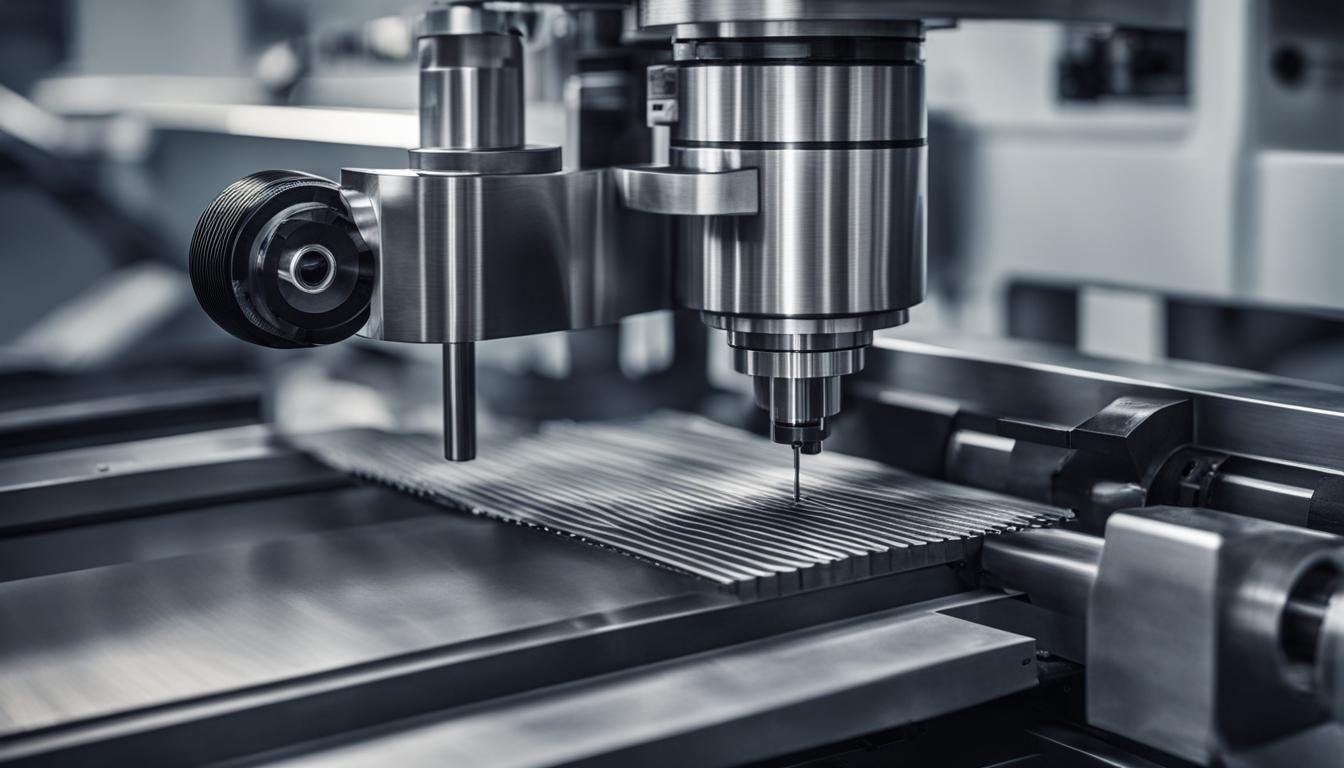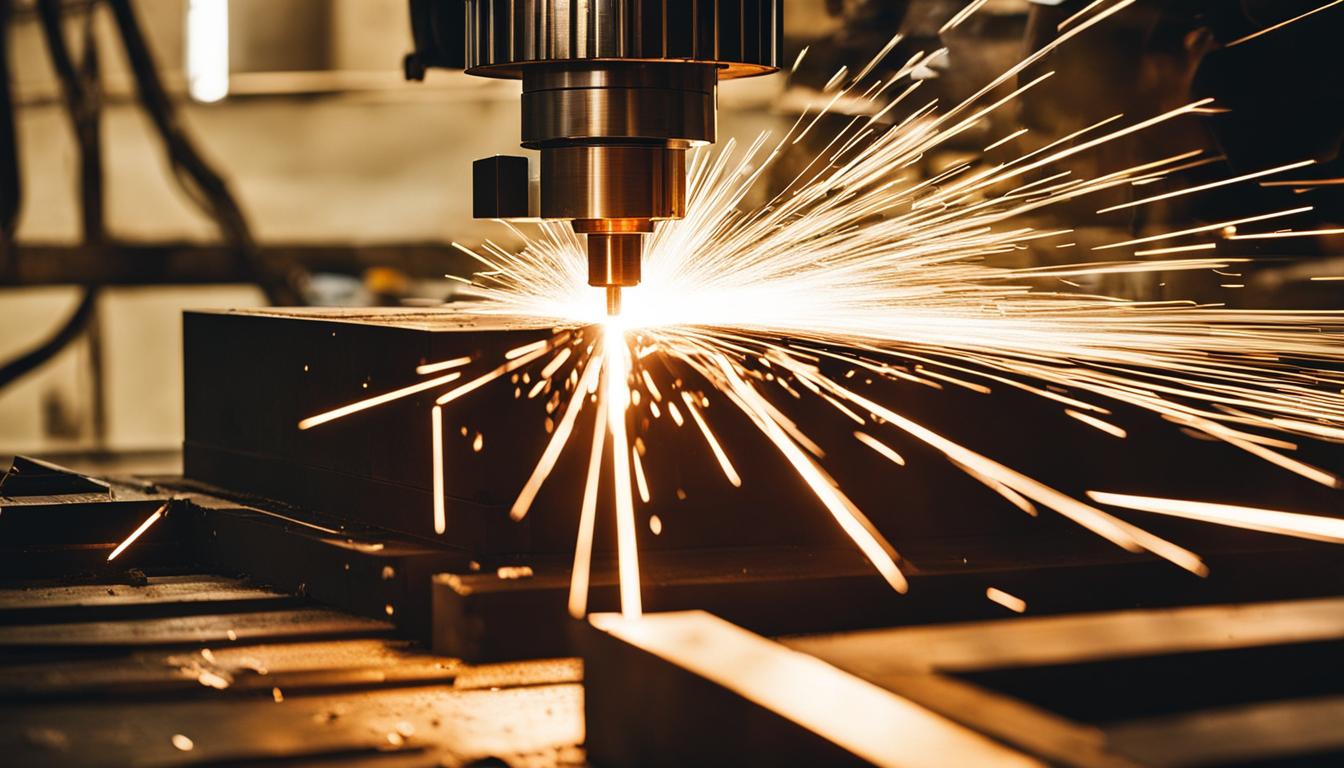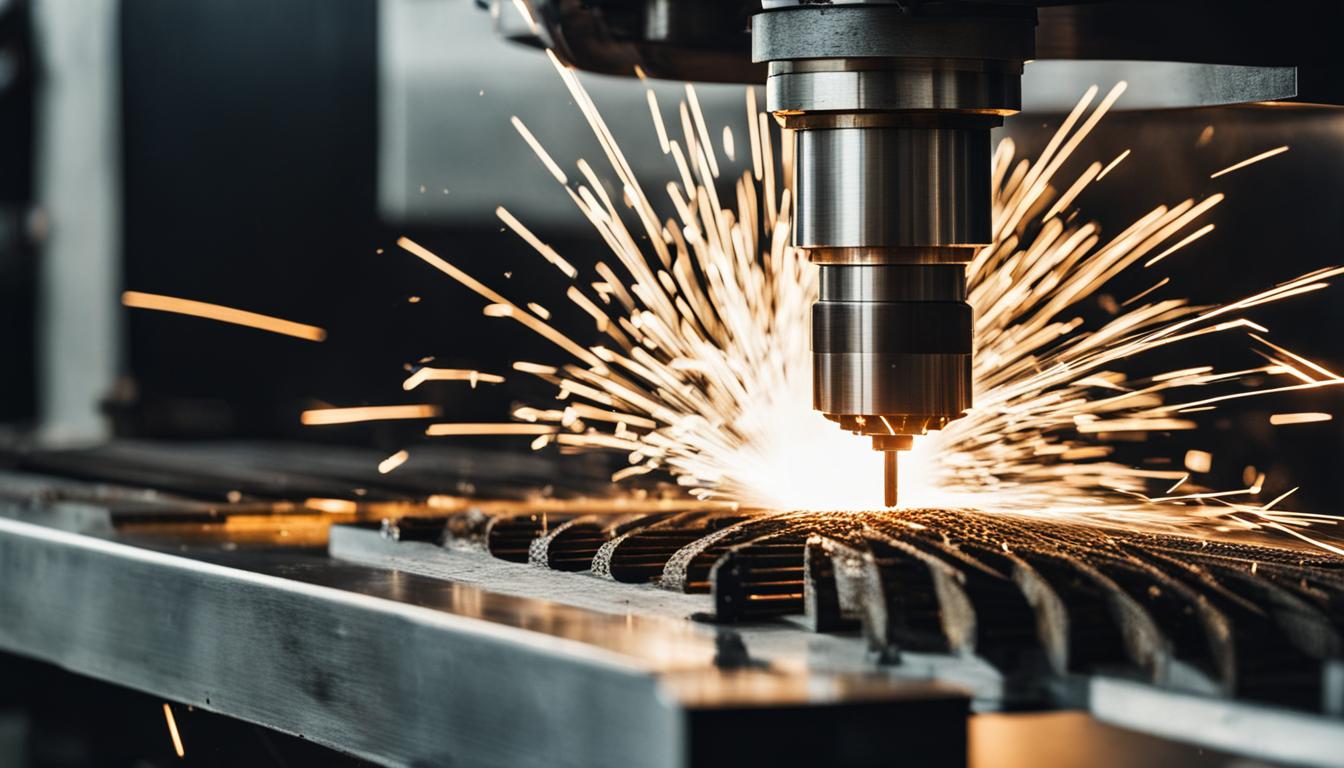Computer Numerical Control (CNC) machining is a manufacturing process that utilizes pre-programmed computer software to control the movement of machinery and tools in order to cut, shape, and create custom-designed parts. CNC machines can be used for a variety of applications in industries such as metalworking, plastic production, and woodworking. The process of CNC machining replaces manual control with automated commands, resulting in greater precision, efficiency, and accuracy.
Key Takeaways
- CNC machining is a manufacturing process that uses pre-programmed computer software to control machinery and tools.
- CNC machines are used in various industries for cutting, shaping, and creating custom-designed parts.
- CNC machining offers greater precision, efficiency, and accuracy compared to manual control.
- It is commonly used in metalworking, plastic production, and woodworking industries.
- With CNC machining, automation and computer software replace manual control for improved results.
How Does CNC Machining Work?
In the world of manufacturing, CNC machining plays a crucial role in transforming complex designs into tangible parts. But how does this process work? Let’s dive into the intricacies of CNC machine programming, the CNC system, and the computer-aided design and manufacturing (CAD/CAM) software that drive this revolutionary technology.
In CNC machining, a part’s desired cuts and operations are meticulously programmed into sophisticated software. This software serves as the control center, dictating the movements and actions of the CNC machine. The programming not only specifies the speed and feed rate but also coordinates the functionalities of different machine tools to ensure precision and accuracy.
The heart of CNC machining lies in the conversion of a 2D or 3D CAD drawing into a part program. This program contains a detailed set of instructions for the CNC system, guiding the machine’s movements and tool actions. It serves as a blueprint, directing the CNC machine to create custom-designed parts with exact specifications.
Computer-aided design (CAD) and computer-aided manufacturing (CAM) software are integral to the CNC machining process. CAD software enables engineers and designers to create detailed models and drawings of the desired parts, while CAM software translates these designs into machine instructions.
With the part program in hand, the CNC machine springs into action. It executes the instructions, utilizing various tools, such as drills, lathes, and mills, to perform the necessary operations. The CNC machine’s movements are precise, repeatable, and automated, ensuring consistent quality and efficiency in production.
CNC machining revolutionizes manufacturing by automating complex tasks, reducing human error, and allowing for intricate designs and tight tolerances. It has become a cornerstone of modern manufacturing processes, delivering unparalleled precision, speed, and cost-effectiveness.
Now that we have explored the inner workings of CNC machining, let’s delve deeper into the various types of CNC machines and their applications.
The Different Types of CNC Machines
When it comes to CNC machines, there are various types available, each designed for specific applications and purposes. Understanding the different types of CNC machines is essential for choosing the right one for your manufacturing needs.
CNC Mills
CNC mills are versatile machines used for cutting and shaping pieces across various distances. They use G-code or proprietary code for programming, allowing for precise control over the cutting process. CNC mills are commonly used in industries such as automotive, aerospace, and prototyping.
CNC Lathes
CNC lathes are designed to produce complex designs in a circular direction. With typically two axes (X and Z), these machines enable the creation of intricate cylindrical shapes and symmetrical parts. CNC lathes are widely used in industries like automotive, medical, and electronics.
Plasma Cutters
Plasma cutters are specifically used for cutting metal materials. They utilize a combination of gas and electrical arcs to generate high temperatures, melting the metal and creating clean, precise cuts. Plasma cutters are commonly employed in metal fabrication, automotive repair, and construction.
Electric Discharge Machines (EDM)
Electric discharge machines (EDM) shape workpieces using electrical sparks. There are two main types of EDM machines: wire EDM and sinker EDM. Wire EDM machines create intricate shapes by cutting through the material with a thin wire, while sinker EDM machines utilize electrodes to erode the material. EDM machines are widely used in industries such as tool and die, mold-making, and precision engineering.
Water Jet Cutters
Water jet cutters use high-pressure water or a mixture of water and abrasives to cut a wide range of materials, including metals, glass, and composites. The precision and versatility of water jet cutters make them ideal for industries like aerospace, architecture, and fabrication.

These are just a few examples of the different types of CNC machines available in the market. CNC machines offer incredible capabilities and are capable of producing highly detailed and accurate parts, making them indispensable tools in modern manufacturing processes.
What Else Can a CNC Machine Do?
In addition to cutting and shaping metal and plastic parts, CNC machines have a wide range of applications across various industries. These versatile machines can be used to create a variety of products and perform diverse tasks. Let’s explore some of the other capabilities of CNC machines:
1. Embroidery Machines
CNC embroidery machines use computer-controlled movements to create intricate and precise designs on fabric. These machines are commonly used in the textile and fashion industries for embellishing garments, accessories, and home decor items.
2. Wood Routers
CNC wood routers are specifically designed for woodworking applications. They can carve, shape, and cut wood with high precision. These machines are used in woodworking shops to create furniture, cabinetry, decorative elements, and architectural moldings.
3. Turret Punchers
Turret punchers are CNC machines that use a multi-tool turret to punch holes and perform other sheet metal fabrication operations. These machines are commonly used in the manufacturing of metal enclosures, electrical panels, and various metal components.
4. Wire-Bending Machines
CNC wire-bending machines are used to bend and shape wire into intricate forms. They are commonly used in the production of wire products such as wire baskets, wire hooks, wire frames, and custom wire forms for industrial and commercial purposes.
5. Foam Cutters
CNC foam cutters utilize hot wires or blades to cut foam materials into specific shapes and sizes. These machines are used in industries such as packaging, signage, construction, and stage design to create foam molds, packaging inserts, insulation panels, and decorative foam elements.
6. Laser Cutters
CNC laser cutters use a high-powered laser beam to cut through various materials, including metal, wood, plastic, and fabric. These machines are widely used in industries such as manufacturing, signage, automotive, and jewelry to create precise and intricate cuts.
7. Cylindrical Grinders
CNC cylindrical grinders are used for precision grinding of cylindrical surfaces. These machines are commonly used in industries such as aerospace, automotive, and medical to produce high-quality cylindrical components with tight tolerances.
8. 3D Printers
CNC 3D printers use additive manufacturing technology to create three-dimensional objects layer by layer. These machines are widely used in various industries, including prototyping, product development, medical, and aerospace, to produce complex and customized parts.
9. Glass Cutters
CNC glass cutters utilize diamond or carbide wheels to cut and shape glass with precision and accuracy. They are used in industries such as architecture, automotive, and interior design to create glass panels, windows, mirrors, and decorative glass elements.
To visualize the diverse applications of CNC machines, here is an image of a CNC machine at work:
History of CNC Machining
The history of CNC machining dates back to the 1940s when the first numerical control machines emerged. These early machines marked a significant advancement in machining technology, as they utilized motors to control the movement of the cutting tools. This development allowed for greater automation and precision in the machining process.
As technology continued to evolve, analog and digital computers began to play a crucial role in the evolution of CNC machining. These computers enabled the development of more sophisticated and powerful control systems, capable of executing complex machining operations with higher accuracy. During this period, significant advancements were made in the programming languages and software used to control CNC machines.
Fast forward to today, and we have modern CNC systems that are highly advanced and fully electronic. These cutting-edge systems offer increased computational capacity, enhanced control capabilities, and improved feedback mechanisms. Not only can they produce parts with greater precision and accuracy, but they also enable the creation of complex geometries and intricate designs.
CNC machining has come a long way since its early days, with advancements in technology revolutionizing the manufacturing industry. From the humble beginnings of numerical control machines to the highly advanced CNC systems of today, the history of CNC machining is a testament to the continuous innovation and development in manufacturing technology.
Becoming a CNC Machinist
A career as a CNC machinist offers a rewarding and in-demand job opportunity. To become a CNC machinist, individuals need to undergo specialized training and education. This can include obtaining an associate degree or certification in CNC machining. CNC machinists require a strong understanding of mechanical design, technical drawings, mathematics, and computer programming. They can work in a variety of industries, including aerospace, automotive, and manufacturing. Obtaining certification from organizations such as the National Institute for Metalworking Skills (NIMS) can enhance job prospects in the field.
One of the key skills needed to excel in a CNC machining career is the ability to operate and program CNC machines. CNC operator training provides individuals with the knowledge and practical experience to operate CNC machines effectively. This training covers topics such as machine setup, tooling, machine controls, measurement techniques, and troubleshooting.
CNC machinists also require a solid foundation in CNC machine education. This education includes learning about the different types of CNC machines, their capabilities, and their applications. CNC machine education provides individuals with the necessary knowledge to select the appropriate machine for a specific job and optimize its performance.
In addition to technical skills, CNC machinists need to possess a range of CNC machining skills. These skills include the ability to read and interpret technical drawings, perform precise measurements using various instruments, and troubleshoot and adjust CNC machines to ensure accuracy and quality.
Furthermore, CNC programming is a crucial skill for CNC machinists. CNC programming involves writing the code that controls the movements and actions of the CNC machine. This code determines the sequence of operations, speeds, feeds, and tool paths. Proficiency in CNC programming allows machinists to create complex parts and achieve high precision.
CNC Certification and Career Growth
Obtaining CNC certification can significantly boost the career prospects of aspiring CNC machinists. Certification programs, such as those offered by NIMS or local trade schools, validate an individual’s knowledge and skills in CNC machining. Employers often prefer certified machinists as they demonstrate a commitment to professionalism and excellence in the field.
CNC certification not only enhances job opportunities but also opens doors for career advancement. With experience and additional training, CNC machinists can progress to more specialized roles, such as CNC programmer, CNC supervisor, or CNC engineer. These roles offer increased responsibilities and higher earning potential.
Comparison of CNC Operator Training Programs
| Training Program | Description | Duration | Cost |
|---|---|---|---|
| Vocational School Program | Hands-on training in CNC machine operation and programming | 6-12 months | $5,000-$10,000 |
| Community College Program | Comprehensive education in CNC machining principles and practices | 1-2 years | $10,000-$20,000 |
| Manufacturing School Program | Intensive training focused on CNC machine operation and optimization | 3-6 months | $8,000-$15,000 |

Investing in CNC operator training and education is a valuable step towards a successful career as a CNC machinist. By acquiring the necessary skills and certifications, individuals can gain a competitive edge in the job market and open doors to a wide range of opportunities in the manufacturing industry.
Training as a CNC Machinist
For individuals interested in pursuing a career as a CNC machinist, there are various training options available. Vocational schools, community colleges, and dedicated manufacturing schools offer comprehensive CNC education programs. These programs equip students with the knowledge and skills required to excel in the field of CNC machining.
In these training programs, students gain a thorough understanding of CNC machining processes, materials, and programming. They also have the opportunity to gain practical experience using modern CNC technologies, such as programming tool location and motion. By combining classroom education with hands-on experience using state-of-the-art CNC machines, students are prepared to enter the workforce as skilled CNC machinists.
One notable example of a school offering CNC training programs is Goodwin College. Their CNC education programs provide students with a solid foundation in CNC machining and a pathway to a successful career in the manufacturing industry. Goodwin College’s focus on practical, real-world skills ensures that graduates are well-prepared for the demands of the CNC machinist profession.
Completing a CNC training program not only equips individuals with the necessary technical skills, but also opens up a wide range of career opportunities. With the increasing demand for CNC machinists across industries, graduates of CNC education programs can pursue fulfilling careers in manufacturing, aerospace, automotive, and more.
